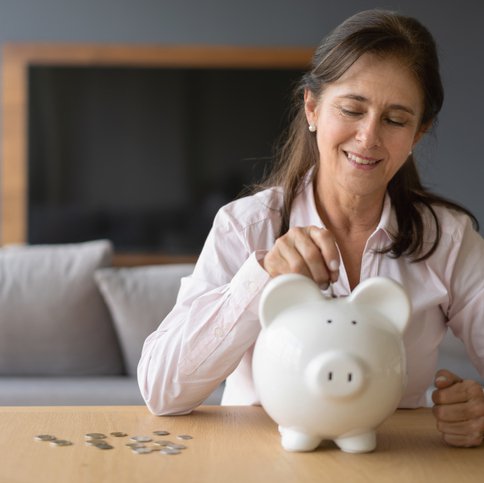Image source: Getty Images
It’s important to increase your cash reserves in order to get the financial protection you deserve.
Key points
- In a recent survey, most women reported a lack of emergency savings.
- It is important to have enough money in the bank to cover at least three months of expenses.
You never know when an emergency expense might arise. If you’re a homeowner, there are a host of things that could go wrong and leave you with a multi-thousand dollar repair bill. And even if you don’t own a home, you might need to fix your car out of the blue or cover medical expenses that your health insurance plan won’t pay for.
Plus, you never know when you might lose your job, even if you’re a solid employee. And while workers laid off through no fault of their own are usually entitled to unemployment benefits, these usually don’t replace your entire salary.
This is why having a strong emergency fund is so important. In fact, you should aim to have enough money in your savings account to cover at least three months of essential expenses. And for the best protection, you can aim for a value of six months – or more.
But in a recent Bank of America survey, only 44% of women reported doing well with emergency savings. And if you feel like you’re running out of cash reserves, it’s important to follow these essential steps to build more of them.
1. Have a limited budget
Without a budget, you might have trouble keeping track of your expenses or figuring out which of your bills to pay. So take some time to create one and get into a solid rhythm. You can budget by listing your expenses on a spreadsheet or piece of paper and comparing what you spend to what you earn. Or, you can play around with different budgeting apps and find one that’s easy and convenient to use.
2. Start spending less
The money you hope to add to your savings account will have to come from somewhere. And a good place to start is non-essential expenses — things like streaming services, gym memberships, restaurant meals, and other expenses that can make life more interesting and enjoyable, but don’t. not count as necessities in the same way that rent, utilities, and drugs do.
You don’t have to eliminate all non-essential expense in your budget. But you might want to get rid of some if your emergency fund isn’t close to where it needs to be, and move that money into your savings.
3. Boost your income with a second gig
Today’s gig economy is booming, which means it’s a great time to get out there and pick up a side hustle. This job can be just about anything you want it to be, whether it’s selling handcrafted artwork or jewelry, providing babysitting services, or… pets, driving for a ride-sharing service, or doing home-based marketing or web design.
Think about the type of gig that you can most easily fit into your schedule, because that will be a good starting point. But do not hesitate to try different trades, because the goal is to generate regular income that adds well to your savings.
Building a strong emergency fund should be your primary financial goal. If you are unsure of the state of your savings, take these steps to increase them, before the need to dip arises.
Alert: The highest cash back card we’ve seen now has 0% introductory APR until almost 2024
If you use the wrong credit or debit card, it could cost you dearly. Our expert loves this top pick, which features an introductory APR of 0% until nearly 2024, an insane payout rate of up to 5%, and all with no annual fee.
In fact, this map is so good that our expert even uses it personally. Click here to read our full review for free and apply in just 2 minutes.
Read our free review

